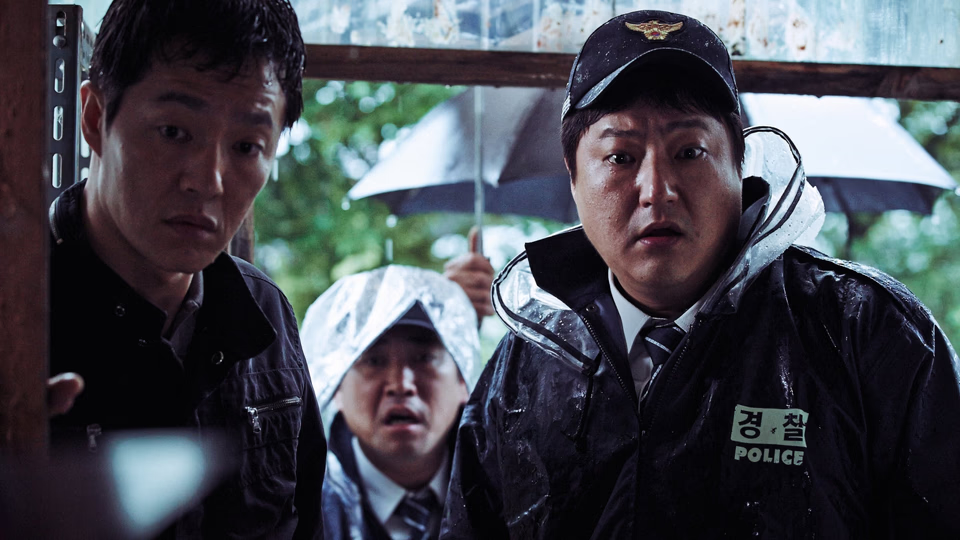The Wailing

With The Wailing, writer-director Na Hong-jin wants to pull a fast one on you. He tells you he’s going to do it. Then he does it anyway.
The setup is pure dread. A remote South Korean village. Grisly murders. Bodies covered in boils. A mysterious Japanese stranger who may or may not be behind it all. When cop Jong-goo’s daughter starts showing symptoms, the race is on.
Here’s where I tip my hand: this review contains spoilers. You’ve been warned.
Na Hong-jin is a gifted technician. The cinematography grips. The editing is world-class. The performances convince. He orchestrates this nearly three-hour nightmare with surgical precision, layering an infection movie over a zombie movie over a possession story. Each pivot feels earned—at first.
But there’s a difference between misdirection and manipulation. Na Hong-jin is doing magic on film, where you can cheat with every cut. And cheat he does. The film wants to be The Usual Suspects by way of David Lynch, but we get dream logic bleeding into reality without clear boundaries, plus twist-heavy plotting that depends on scenes existing solely to fool us.
Take a pivotal cross-cutting sequence. A shaman drives stakes into an effigy. Cut to the Japanese man recoiling in pain at the exact same moments. Later we learn Na Hong-jin showed us only what we wanted to see—a lie of omission. Fine. Clever, even. But then the Japanese man rushes through the woods the next morning, shocked to find a corpse missing. What’s the point of this scene except to mislead us? Would he have rushed there if we weren’t watching? I doubt it.
Then there’s the woman in white, who could resolve everything by being direct with Jong-goo instead of cryptic. This is what Roger Ebert used to call “the idiot plot”—stories that would end in minutes if the characters behaved like normal people instead of idiots. She speaks in riddles and half-truths to keep us—not Jong-goo—guessing.
Which brings us to Jong-goo himself. Kwak Do-won delivers a convincing performance as a cowering cop whose screams could be the titular wailing. But he’s maddeningly slow, ineffectual to the point of negligence. Indeed, the police are useless. The church is useless. Everyone’s useless. This isn’t nihilism; it’s cynicism. In nihilistic horror, your actions don’t matter—chilling. In cynical horror, you’re getting what you deserve—exhausting.
Maybe a second viewing would reveal deeper insights, but I’m not sure I could endure another three hours of Jong-goo’s stupefied expressions and hysterical screams.
Was that the point? If so, I don’t fault the execution, it’s the trick itself that underwhelmed me. When magic happens on film instead of in person, it needs to be tighter than this. Much tighter.